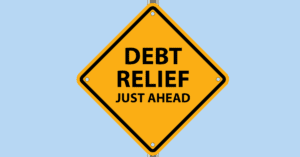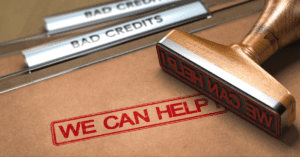Bankruptcy and Insolvency Act (BIA): What Is It?
Navigating the complexities of the ‘Bankruptcy and Insolvency Act’ can feel daunting, especially when you’re grappling with financial stress. As a licensed insolvency trustee, I specialize in making the BIA easy to understand and accessible. This article explains how this act can give hope to Canadians facing financial difficulties. Let’s discuss the BIA and discover how it can offer you a fresh start.
Understanding the Basics of the Bankruptcy and Insolvency Act
What is the Bankruptcy and Insolvency Act (BIA)?
The BIA is an important part of Canadian financial law, helping to solve personal and corporate financial problems. A critical tool for anyone facing overwhelming debt.
Historical Context and Evolution
The BIA has evolved over the years, reflecting the changing economic landscape in Canada. Understanding its history helps in appreciating its current role in Canadian financial life.
Key Components of the Act
The BIA helps with insolvency and bankruptcy by providing procedures and guidelines for financial recovery.
When and How the Bankruptcy and Insolvency Act Applies
Eligibility Criteria
The ‘Bankruptcy and Insolvency Act’ has rules for individuals and businesses to qualify for relief.
Bankruptcy vs. Insolvency
Understanding the distinction between bankruptcy and insolvency is crucial. While related, they represent different financial states and solutions.
Role of Licensed Insolvency Trustees
In the BIA, licensed insolvency trustees help people with debt by guiding them through bankruptcy or consumer proposal.
Exploring Solutions Under the BIA: Bankruptcy
What Does Filing for Bankruptcy Mean?
Filing for bankruptcy means admitting you can’t pay debts and provides a structured way to deal with financial obligations.
The Process of Filing for Bankruptcy
This process, governed by the BIA, involves several steps, including paperwork, meetings with creditors, and fulfilling specific duties.
Pros and Cons
Bankruptcy under BIA helps, but affects credit and finances, so think carefully before deciding.
Alternatives to Bankruptcy: Consumer Proposals
What is a Consumer Proposal?
A consumer proposal is an alternative option in the BIA. It allows individuals to negotiate repayment of a portion of their debts.
Advantages Over Bankruptcy
Choosing a consumer proposal in the BIA can affect your credit score less and let you keep more of your assets.
Process and Requirements
Filing a consumer proposal means talking to creditors and following a payment plan.
Life After Bankruptcy or a Consumer Proposal
Rebuilding Credit and Financial Stability
After filing for bankruptcy or a consumer proposal, individuals have the opportunity to improve their credit and recover financially. The ‘Bankruptcy and Insolvency Act’ outlines all this.
Strategies for Effective Debt Management
Effective debt management post-resolution under the BIA involves learning new financial skills and adopting better money management practices.
Success Stories Due to the Bankruptcy and Insolvency Act
Many have successfully navigated their financial recovery under the BIA, emerging stronger and more financially savvy.
Legal and Financial Considerations of The Bankruptcy and Insolvency Act
Understanding Your Legal Rights and Obligations
Knowing your rights and obligations under the BIA is crucial for anyone facing financial challenges.
Impact on Credit Ratings and Future Loans
The BIA does affect credit ratings, but it also provides a framework for rebuilding financial credibility.
Seeking Professional Advice with the Bankruptcy and Insolvency Act
As a licensed insolvency trustee, I am an expert with the BIA and can give you personalized advice for your financial decisions.
Conclusion
The BIA is more than just legislation; it’s a pathway to financial recovery. If you’re struggling with debt, understanding this Act is your first step towards regaining control. Seeking help is a sign of strength, not weakness.
Utilize the Bankruptcy and Insolvency Act
If the BIA seems like it could be relevant to your situation, don’t hesitate to reach out for a free consultation. Together, we can explore your options under the Act and start your journey towards financial freedom. Visit our resources for more information and guidance.




